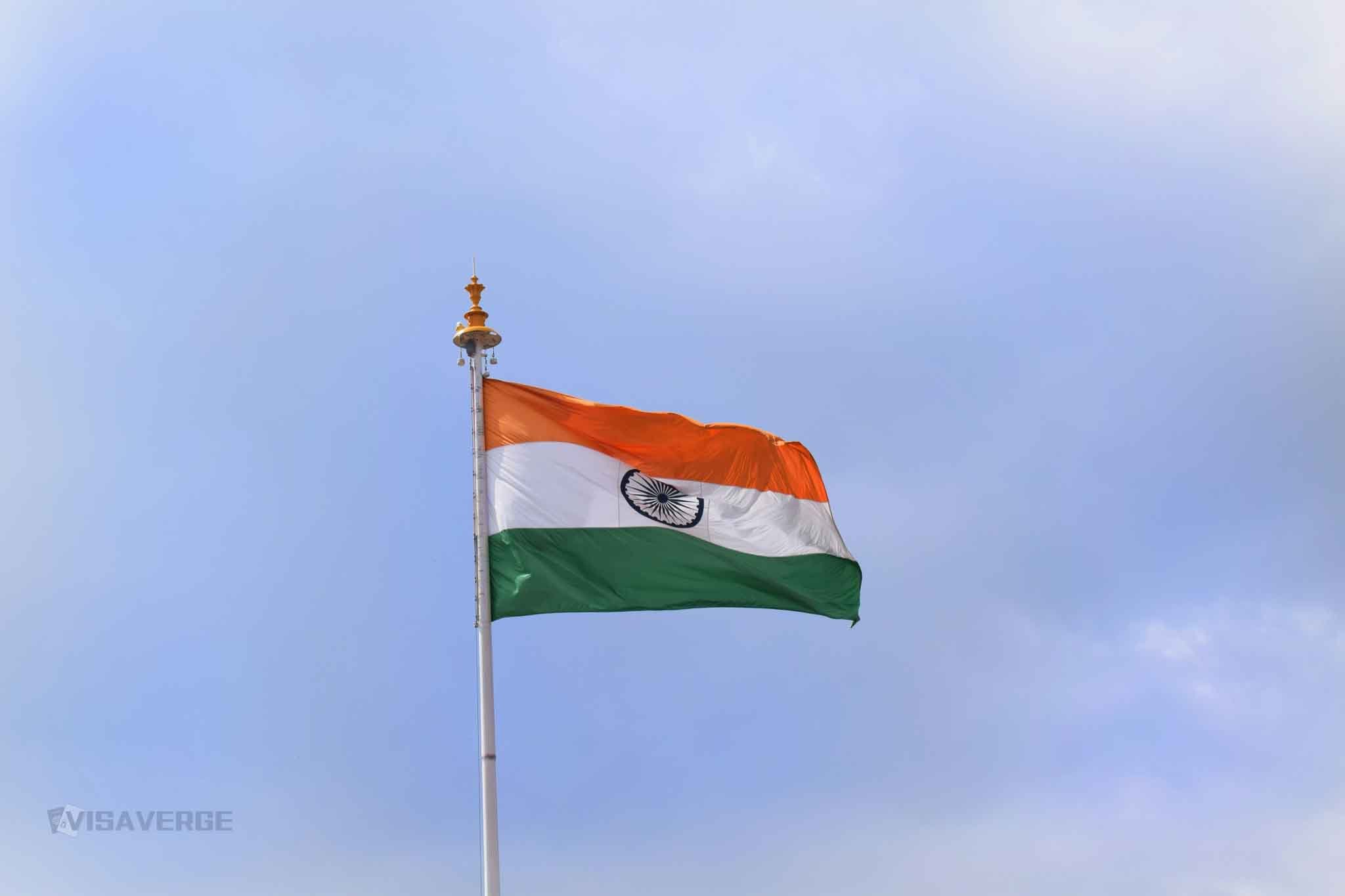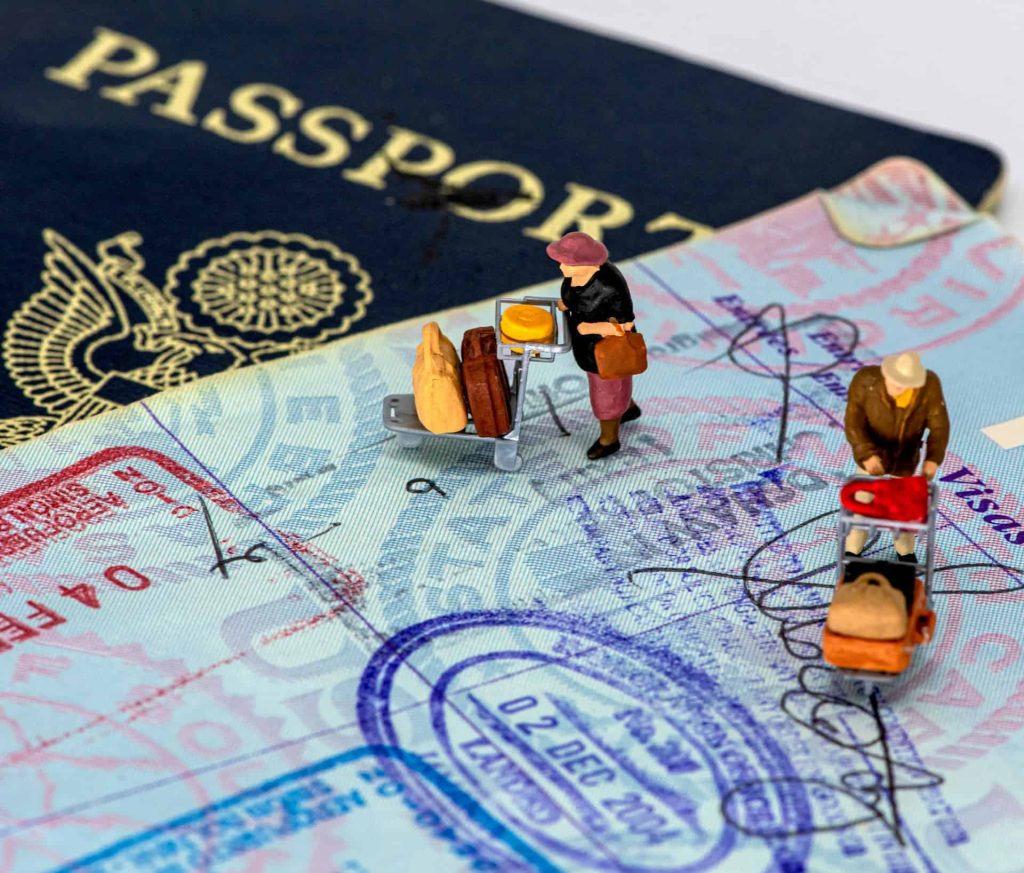Key Takeaways
• Indian visa applications to Turkey and Azerbaijan dropped 42% after diplomatic support for Pakistan.
• Women and travelers aged 25-34 in metro cities changed plans first, switching to Southeast Asia and Egypt.
• Travel agencies like MakeMyTrip saw a 60% fall in bookings and predicted ₹3,000 crore loss for 2025.
Indian Visa Applications to Turkey and Azerbaijan Drop Sharply After Geopolitical Dispute: A Closer Look
Indian travelers have quickly changed their plans in response to recent world events, mainly pulling back from trips to Turkey 🇹🇷 and Azerbaijan 🇦🇿. After both countries publicly backed Pakistan following India’s Operation Sindoor, visa applications from India to these destinations saw a fast and sharp drop. According to recent reports, there has been a 42% decrease in Indian visa applications for Turkey and Azerbaijan, as compared to previous months. This shift shows just how quickly global politics can affect the choices of travelers from India.

Early in 2025, both Turkey 🇹🇷 and Azerbaijan 🇦🇿 were becoming more popular than ever with Indian tourists. In the first quarter of 2025, visa applications from India to these countries had jumped 64% compared to the previous year. However, this trend was suddenly reversed when the diplomatic clash happened.
How the Change Happened So Quickly
The reaction among travelers was swift. Within just 36 hours of the public statements by Turkey and Azerbaijan, the visa processing website Atlys noticed that 60% of Indian users left their applications incomplete when trying to get visas for those two countries. This means that most people changed their minds almost right away after the news broke, and they stopped the process before finishing.
Before this, there had been steady growth in Indian visa applications for Turkey and Azerbaijan. But almost overnight, people started to look for other travel spots. With many online tools making it easier to change plans, Indian travelers acted fast, showing that they are now more connected with what is happening in the world.
Different Reactions Across India
Not all travelers responded in the same way. There were clear differences based on where the travelers lived and how they usually planned their holidays.
- Metro vs. Tier 2 Cities: People living in major Indian cities like Delhi and Mumbai were the quickest to stop planning trips to Turkey 🇹🇷. In these metro areas, visa applications for Turkey fell by 53%. In comparison, travelers from tier 2 cities such as Indore and Jaipur were a little less likely to change their plans, with only a 20% drop in applications for those destinations.
- Group vs. Individual Travel: Indian families and groups that often travel together showed the biggest changes. Applications made for groups or families dropped by nearly half—49%. Meanwhile, solo travelers and couples were a bit less likely to change their minds right away, with a 27% decrease in their applications.
-
Age and Gender Patterns: Younger travelers, especially those aged 25-34, were much more likely to change their plans quickly. In fact, people in this age group made up over 70% of the incomplete or abandoned visa applications for Turkey 🇹🇷. Also, women travelers were 2.3 times more likely than men to completely switch to another destination, and most chose new spots in Southeast Asia.
These patterns suggest several things. Travelers in bigger Indian cities, younger people, and women were more aware of the diplomatic news or more willing to change plans because of it. Family groups perhaps felt more pressure to avoid locations where politics might cause discomfort or safety concerns.
Where Are Indian Travelers Going Instead?
With Indian visa applications to Turkey and Azerbaijan dropping, several new destinations became more popular for Indian tourists.
- Southeast Asia on the Rise: Countries like Vietnam, Indonesia, and Thailand saw a big increase in visa applications from India. For example, Vietnam and Indonesia had up to a 31% rise in interest. Thailand, in particular, became a favorite, mostly for women travelers who chose it as a safer and more neutral option.
-
EGYPT 🇪🇬 Also Gains: Besides the usual Southeast Asian destinations, Egypt also noticed a rise in interest among Indian travelers.
-
Reasons for Choice: The main factors behind these choices were affordability (the trips were not too expensive), easy visa processes, and the countries’ political neutrality, meaning they did not take public sides in the diplomatic dispute.
Analysis from VisaVerge.com suggests these trends will likely hold as long as global tensions shape travelers’ comfort and choices. The easy access to travel information online, along with more flexible booking and cancellation policies, has made it simpler than ever for Indian holidaymakers to adjust their plans on short notice.
How This Has Affected the Travel Industry
Travel platforms and companies that help people book international trips saw the effects of these changes almost immediately.
- Booking Drops: Popular Indian travel booking sites like MakeMyTrip noticed a 60% fall in bookings for Turkey and Azerbaijan within a single week after the diplomatic news. Meanwhile, the number of trip cancellations for those locations shot up by a huge 250%. This forced travel companies to focus more on other destinations in their marketing and planning.
-
Revenue Losses: EaseMyTrip, another big name in travel services, predicted that Turkey and Azerbaijan would lose about ₹3,000 crore (about $370 million) in tourism revenue from India in 2025 if this trend continues.
-
Shift in Marketing: Atlys stopped all its marketing and advertising for trips to Turkey and Azerbaijan. The company’s CEO, Mohak Nahta, stated they were “standing by India and in solidarity with national sentiment.” This shows that companies are now paying close attention to how national public opinions can impact global travel and business.
Taken together, these changes have forced companies to rethink their business plans and focus on destinations that Indian travelers now feel more comfortable visiting. Since booking is mostly done online now, it’s easy for travel companies to change their offers or highlight different countries at short notice.
Why Are Travelers So Quick to Change Plans?
One key reason is that travelers today, especially younger people, have more information at their fingertips. Mobile phones and internet booking sites make it easy to learn about what is happening in the world and to change plans if something feels risky or uncomfortable.
- Political Awareness: The quick change in Indian visa applications for Turkey and Azerbaijan shows that many people now think about world news and politics before deciding where to go on holiday.
-
Social Media Influence: News about the diplomatic clash spread very fast through social media, making people even more aware. As soon as people saw that these countries had taken a public stand against their own nation, they were less likely to visit.
-
Support for National Sentiment: For some Indian travelers, avoiding Turkey and Azerbaijan 🇦🇿 was also a way to show support for India following Operation Sindoor. Travelers today often use their choices to make a statement, even through decisions like what destination to visit.
Historic Context and Shifting Patterns
Historically, both Turkey 🇹🇷 and Azerbaijan 🇦🇿 have been popular holiday spots for Indians. Turkey, with its rich history and mix of European and Asian cultures, draws many who want to enjoy new food, architecture, and beautiful coastlines. Azerbaijan’s capital, Baku, has become famous for its blend of old and new, along with easy visa options for Indian passport holders.
Before the recent drop, both countries had invested a lot in attracting more Indian tourists. Airlines increased flights, hotels began to offer Indian food and language options, and special marketing campaigns were created, all to make Indian travelers feel welcome. That work had paid off, as seen by the 64% annual increase in visa applications at the start of 2025.
But the picture changed, almost overnight, with one key geopolitical event. The new trend proves how quickly goodwill and growth in international travel can be reversed if politics get involved.
Direct Impact on Travelers
The people most affected by these changes are not just the countries or companies, but also the travelers themselves.
- Holidays Delayed or Changed: Many people who planned summer holidays, honeymoons, group tours, or solo trips had to change their plans at the last minute. For some, this meant extra time and money spent rebooking flights, hotels, and activities.
-
Visa Fee Losses: When canceling or abandoning Indian visa applications for Turkey or Azerbaijan partway through, travelers often lose out on application fees or non-refundable costs.
-
Limited Refunds: Many travel packages come with only partial refunds, leaving travelers to absorb some of the cost. Some companies stepped up their refund policies in response to the trend, but not all could do this quickly.
-
Uncertainty for Future Plans: With situations changing so quickly, many now wait for news on international relations before making big travel plans. People are more cautious about putting down deposits or booking non-refundable tickets.
Implications for the Future
Looking forward, this situation highlights a few major points for travelers and the travel sector:
- Geopolitics Will Continue to Shape Travel Choices: As long as politics have a visible effect on travel safety or comfort, people will likely keep changing their plans in response to sudden news.
-
Travel Companies Must Stay Flexible: The drop in Indian visa applications for Turkey and Azerbaijan shows that companies need to monitor news and adapt quickly, offering new destinations if political risks make some countries unpopular.
-
Rise of “Ethical” Travel: As some travelers now use travel choices to show support or disapproval for countries’ political stands, “ethical” or values-based travel could become more common. Travelers might avoid, or actively choose, places based on what those countries stand for.
-
Use of Technology: Technology will keep playing a big role. With most bookings and visa applications done online, data from companies like Atlys can spot patterns early on. Travelers will keep using apps and online services that help them decide quickly and make changes without too much hassle.
-
Changing Trends in Visa Applications: Countries that want to keep their tourism numbers strong may need to offer easy visa rules and keep a neutral or friendly position in international events. For example, countries that saw more Indian visa applications recently had simple online processes and did not take sides in the recent dispute.
For official details on visa requirements, travelers can always refer to India’s Bureau of Immigration, which maintains up-to-date information.
Summary
In summary, the sharp 42% drop in Indian visa applications to Turkey 🇹🇷 and Azerbaijan 🇦🇿 shows how sensitive travel plans have become to global events. Younger travelers, women, and urban residents were quickest to change their minds, often picking new, more welcoming destinations like Thailand, Vietnam, and Indonesia. Travel companies are feeling the impact, from lost bookings to revenue drops, and must stay alert and adjust quickly. As travelers have more options and faster ways to change plans, the link between world news and personal travel choices will likely grow even stronger.
The current situation serves as a reminder for travelers and the industry to stay flexible, to watch world events, and to be ready for sudden changes in how people pick their next travel adventure.
Learn Today
Visa Application → A formal process where a traveler requests permission to enter a foreign country for tourism or other purposes.
Operation Sindoor → An Indian national event or operation that caused diplomatic reactions from Turkey and Azerbaijan, influencing travel patterns.
Diplomatic Dispute → A disagreement between countries, often resulting in political or economic consequences for citizens or businesses.
Travel Booking Sites → Online platforms, like MakeMyTrip, that help travelers purchase tickets, accommodations, and tours internationally.
Political Neutrality → A country’s stance of not taking sides in conflicts, appealing to travelers seeking safe and unbiased destinations.
This Article in a Nutshell
After Turkey and Azerbaijan backed Pakistan following India’s Operation Sindoor, Indian travelers rapidly canceled trips. Visa applications to both countries dropped 42%, with the biggest changes from urban, female, and young travelers. Travel companies faced big losses, and Southeast Asia and Egypt quickly became the new favorites for Indian tourists.
— By VisaVerge.com
Read more:
• Indian travel firms suspend trips to Turkey and Azerbaijan after conflict
• Turkey travel bookings suspended by Indian agencies after Pakistan row
• Bipartisan Bill Seeks to Classify Turkey as Part of the Middle East
• Turkey Online E-Visa: What Travelers Need to Know for 2025
• Turkey On Arrival Visa Ends: What Travelers Need to Know Before Visiting













